16Th Amendment Drawing
16Th Amendment Drawing - The congress shall have power to lay and collect taxes on incomes, from whatever source derived, without apportionment among the several states, and without regard to any census or enumeration. Web the sixteenth amendment ( amendment xvi) to the united states constitution allows congress to levy an income tax without apportioning it among the states on the basis of population. The congress shall have power to lay and collect taxes on incomes, from whatever source derived, without apportionment among the several states, and without regard to any census or enumeration. The original text of the sixteenth amendment of the constitution of the united states. The congress shall have power to lay and collect taxes on incomes, from whatever source derived, without apportionment among the several states, and without regard to any census or enumeration. Web constitution of the united states. Web updated on march 02, 2022. The amendment was passed to remove the ‘direct tax dilemma’ related to article i, section 8 of the constitution. The congress shall have power to lay and collect taxes on incomes, from whatever source derived, without apportionment among the several states, and without regard to any census or enumeration. Web amdt16.1 historical background of the sixteenth amendment. Farmers' loan & trust co. The congress shall have power to lay and collect taxes on incomes, from whatever source derived, without apportionment among the several states, and without regard to any census or enumeration. The amendment was passed to remove the ‘direct tax dilemma’ related to article i, section 8 of the constitution. Web updated on march 02, 2022.. The congress shall have power to lay and collect taxes on incomes, from whatever source derived, without apportionment among the several states, and without regard to any census or enumeration. Web sixteenth amendment, amendment (1913) to the constitution of the united states permitting a federal income tax. The amendment was passed to remove the ‘direct tax dilemma’ related to article. The congress shall have power to lay and collect taxes on incomes, from whatever source derived, without apportionment among the several states, and without regard to any census or enumeration. The 16th amendment to the united states constitution gives congress the power to collect a federal income tax from all individuals and businesses without sharing or “apportioning” it among the. Read interpretations of the 16th amendment. Web amdt16.1 historical background of the sixteenth amendment. Web sixteenth amendment, amendment (1913) to the constitution of the united states permitting a federal income tax. Web updated on march 02, 2022. It was passed by congress in 1909 in response to the 1895 supreme court case of pollock v. Web amdt16.1 historical background of the sixteenth amendment. Web the sixteenth amendment ( amendment xvi) to the united states constitution allows congress to levy an income tax without apportioning it among the states on the basis of population. Farmers' loan & trust co. The congress shall have power to lay and collect taxes on incomes, from whatever source derived, without. Farmers' loan & trust co. Web updated on march 02, 2022. The congress shall have power to lay and collect taxes on incomes, from whatever source derived, without apportionment among the several states, and without regard to any census or enumeration. Web constitution of the united states. Sixteenth amendment (1913) what it says. It was passed by congress in 1909 in response to the 1895 supreme court case of pollock v. The congress shall have power to lay and collect taxes on incomes, from whatever source derived, without apportionment among the several states, and without regard to any census or enumeration. Web sixteenth amendment, amendment (1913) to the constitution of the united states. Web amdt16.1 historical background of the sixteenth amendment. Web the sixteenth amendment ( amendment xvi) to the united states constitution allows congress to levy an income tax without apportioning it among the states on the basis of population. Web constitution of the united states. Farmers' loan & trust co. The congress shall have power to lay and collect taxes on. Farmers' loan & trust co. Web updated on march 02, 2022. Web constitution of the united states. Web the sixteenth amendment ( amendment xvi) to the united states constitution allows congress to levy an income tax without apportioning it among the states on the basis of population. Read interpretations of the 16th amendment. The original text of the sixteenth amendment of the constitution of the united states. Web updated on march 02, 2022. The amendment was passed to remove the ‘direct tax dilemma’ related to article i, section 8 of the constitution. It was passed by congress in 1909 in response to the 1895 supreme court case of pollock v. Read interpretations of. Farmers' loan & trust co. Web sixteenth amendment, amendment (1913) to the constitution of the united states permitting a federal income tax. Web the sixteenth amendment ( amendment xvi) to the united states constitution allows congress to levy an income tax without apportioning it among the states on the basis of population. It was passed by congress in 1909 in response to the 1895 supreme court case of pollock v. The congress shall have power to lay and collect taxes on incomes, from whatever source derived, without apportionment among the several states, and without regard to any census or enumeration. The amendment was passed to remove the ‘direct tax dilemma’ related to article i, section 8 of the constitution. The congress shall have power to lay and collect taxes on incomes, from whatever source derived, without apportionment among the several states, and without regard to any census or enumeration. The congress shall have power to lay and collect taxes on incomes, from whatever source derived, without apportionment among the several states, and without regard to any census or enumeration. Web updated on march 02, 2022. The congress shall have power to lay and collect taxes on incomes, from whatever source derived, without apportionment among the several states, and without regard to any census or enumeration. Read interpretations of the 16th amendment. The original text of the sixteenth amendment of the constitution of the united states. The 16th amendment to the united states constitution gives congress the power to collect a federal income tax from all individuals and businesses without sharing or “apportioning” it among the states or basing the collection on the u.s. Web constitution of the united states.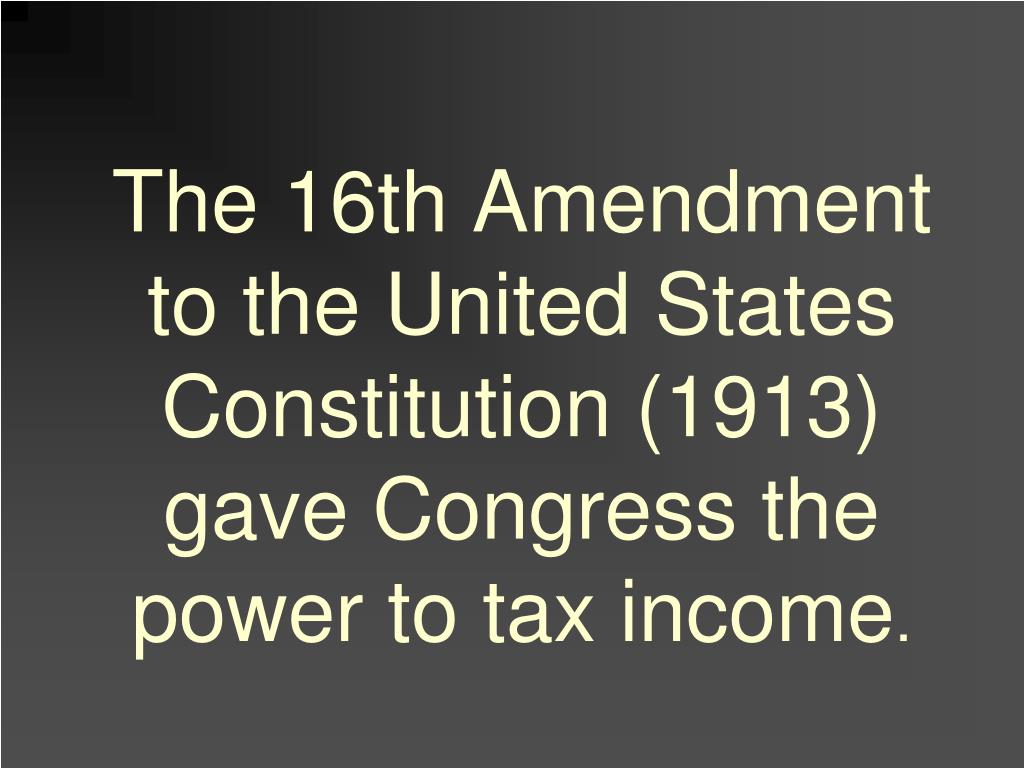
PPT 16 th Amendment PowerPoint Presentation, free download ID1086127
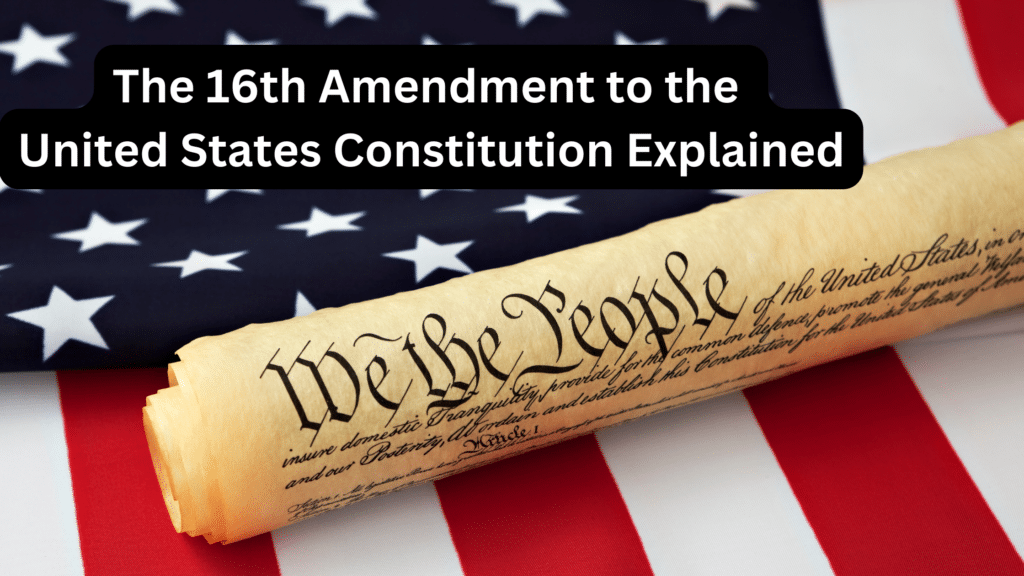
16th Amendment to the United States Constitution Explained

The 16th Amendment How the U.S. Federal Tax Became D.C.'s

Sixteenth Amendment You Work, You Pay (The Government)! U.S

27 Amendments by seth.aaron
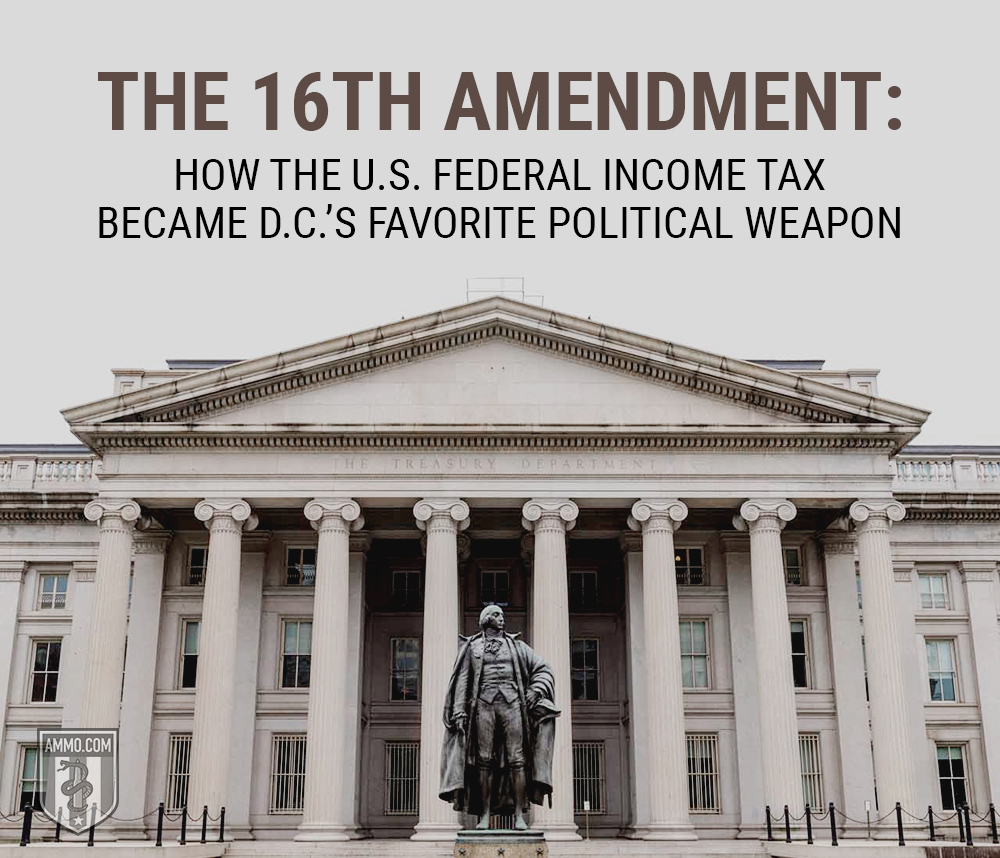
16th Amendment Examples

This drawing illustrates a person's Sixth Amendment right to a A fair
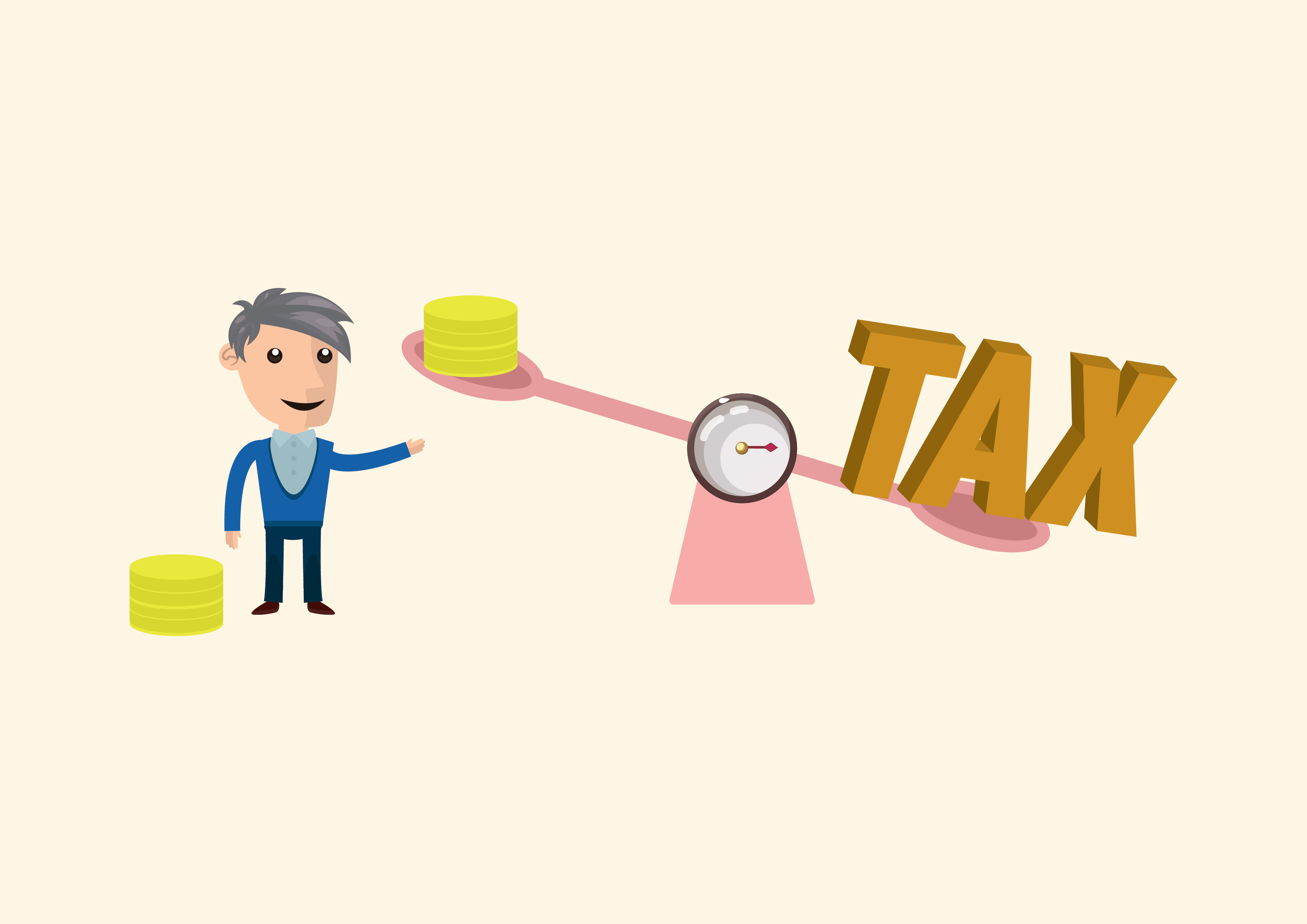
Sixteenth Amendment Facts Cool Kid Facts
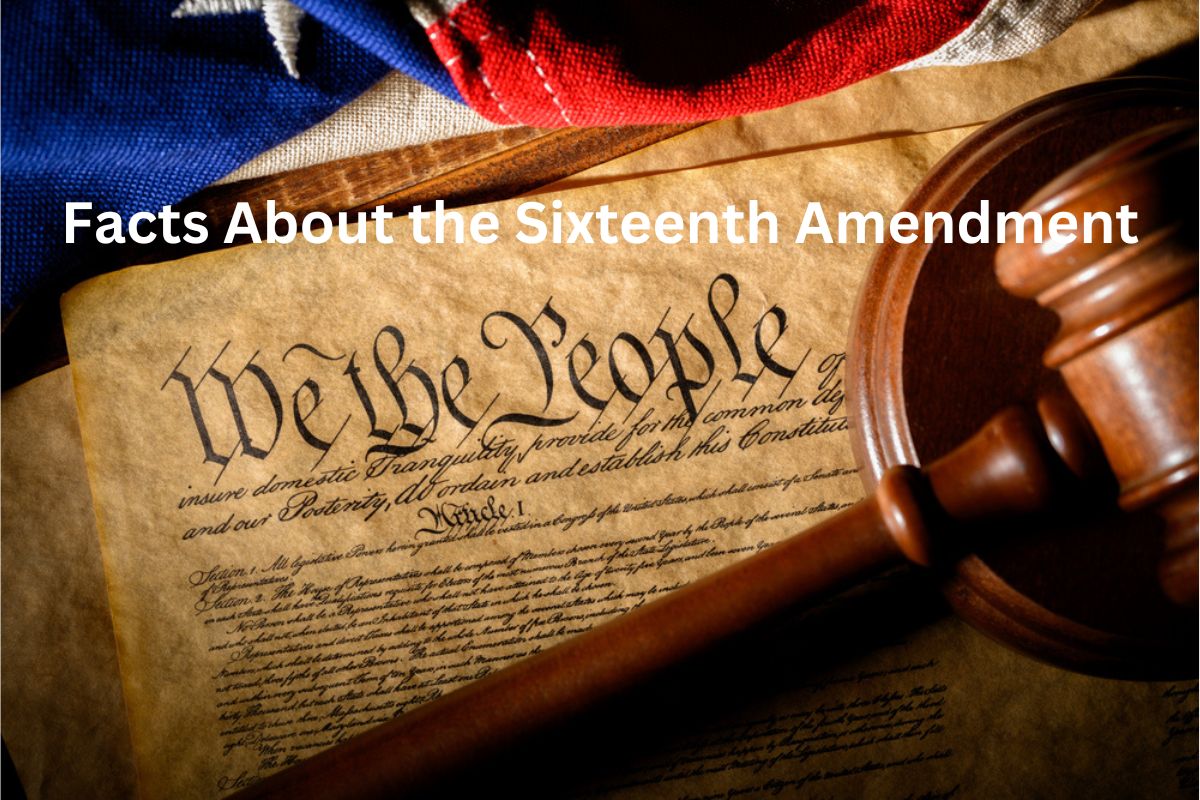
10 Facts About the Sixteenth Amendment Have Fun With History

PPT 16 th Amendment PowerPoint Presentation, free download ID1086127
The Congress Shall Have Power To Lay And Collect Taxes On Incomes, From Whatever Source Derived, Without Apportionment Among The Several States, And Without Regard To Any Census Or Enumeration.
Web Amdt16.1 Historical Background Of The Sixteenth Amendment.
Learn More About The Sixteenth Amendment, Including Its Full Text.
Sixteenth Amendment (1913) What It Says.
Related Post: